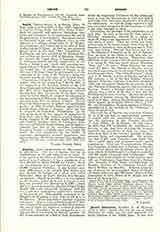

Snorri Sturluson , historian, b. at Hvammr, 1178; d. 1241. Snorri, who was the son of Sturla Thortsson (d. 1182), was the most important Icelandic historian of the Middle Ages. In him were united the experienced statesman and the many-sided scholar. As a child he went to the school of Saemund the Wise at Oddi, of which, at that time, Saemund’s grandson Jón Loptsson was the head. On his father’s side Jón was related to the most distinguished families of Iceland, while by his mother Thora he was connected with the royal family of Norway. Under this skillful teacher Snorri was thoroughly trained in many branches of knowledge, but he learned especially the old northern belief in the gods, the saga concerning Odin, and Scandinavian history. By a rich alliance Snorri obtained the money to take a leading part in politics, but his political course brought him many dangerous enemies, among whom King Haakon of Norway was the most powerful, and he was finally murdered at the king’s instigation. Snorri’s importance rests on his literary works of which “Heimskringla” (the world) is the most important, since it is the chief authority for the early history of Iceland and Scandinavia. However, it does not contain reliable statements until the history, which extends to 1177, reaches a late period, while the descriptions of the primitive era are largely vague narrations of sagas. The Sturlunga-Saga, which shows more of the local coloring of Iceland, was probably only partly the work of Snorri. On the other hand he is probably the author of the Younger Edda called “Snorra-Edda“, which was intended as a textbook of the art of poetry. Its first part “Gylfaginning” relates the mythology of the North in an interesting, pictorial manner, and is a compilation of the songs of the early scalds, the songs of the common people, sagas, and probably his own poetic ideas.
PIUS WITTMANN

